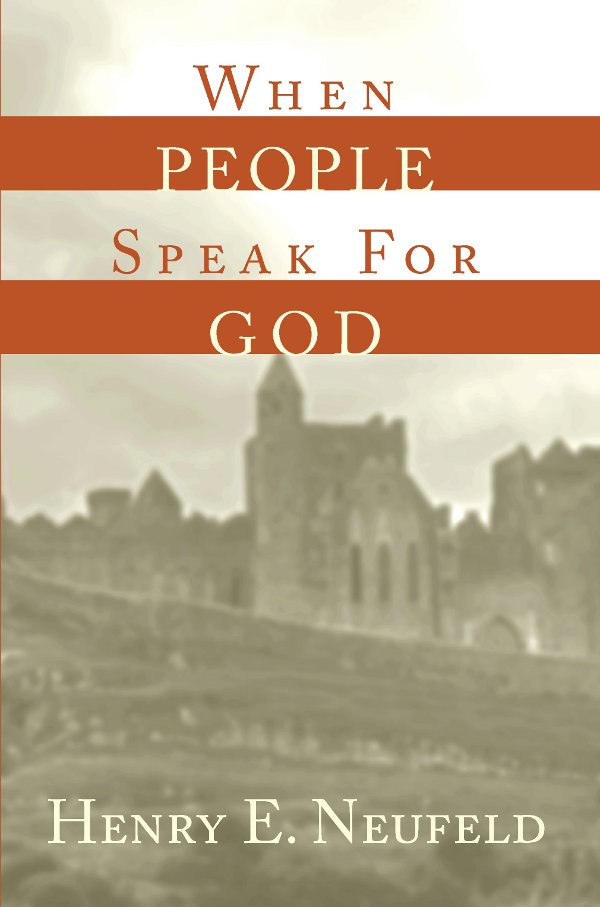My Goal in Fostering Dialogue
I get this question quite frequently: What are you trying to accomplish? If it’s not presented as a question, it’s presented as an assumption.
Here are some major options:
- My goal is to advance a liberal theological agenda, i.e., to make people more liberal by getting conservatives to listen to or read liberal opinions.
- My goal is to advance a conservative theological agenda by getting liberals to listen to conservatives through the sneaky ploy of listening to the liberals first.
- I hope to get us all to agree on the TRUTH, and thus be unified as Christian believers, or in the case of political goals, generally unified as a country (whichever one that is).
- I hope to get us all to decide that it doesn’t really matter what we believe, so long as we’re tolerant of one another.
None of those are correct.
At this point it might be worthwhile to read my essay on the Energion Discussion Network, posted yesterday, in which I discuss my theology of dialogue.
You see, my goal in fostering dialogue is to … foster a spirit of dialogue.
 I think that having a spirit of dialogue is an excellent state of mind, and is itself an excellent goal. Some may be concerned that dialogue is not, in fact, a destination. You carry out dialogue to produce other effects. And indeed you do. But one of those effects is the spirit that goes with dialogue, an inquiring spirit, a listening spirit, a humble spirit. You get the point. And yes, those attitudes lead to other beneficial results.
I think that having a spirit of dialogue is an excellent state of mind, and is itself an excellent goal. Some may be concerned that dialogue is not, in fact, a destination. You carry out dialogue to produce other effects. And indeed you do. But one of those effects is the spirit that goes with dialogue, an inquiring spirit, a listening spirit, a humble spirit. You get the point. And yes, those attitudes lead to other beneficial results.
In discussing defending your faith with some young people this past summer I told them the first question when they want to argue with someone should be how that person came to their particular belief, not how you can challenge that belief. Some might think this is giving up the high ground of TRUTH. On the contrary, even if you decide you must argue vigorously against their position, that their position is dangerous and destructive, knowing how they came to that opinion can only make discussion more effective.
But, and it’s a big “but,” you may also discover weaknesses in your own position on the way to understanding how they came to theirs. That’s another benefit for you. It’s possible you might even change your mind in the process.
From the letters of Paul (but see below) we get two statements that are in tension. The first is in 1 Corinthians 8:2, “Those who think they know something do not yet know as they ought to know.” (NIV. I got this from Bible Gateway, a very useful resource.) Think about that! It doesn’t stop biting you if you want to stand on your knowledge with pride. Then there is 2 Timothy 3:7, “always learning but never able to come to a knowledge of the truth.” Somewhere in the tension between those two there is a good place where you humbly hold your ideas, always willing to learn, yet can be firm in your faith. (You should be aware that many scholars do not credit 2 Timothy, or the other pastoral letters, to Paul. That is another good subject for dialogue.)
In fact, I believe that we humans are much too likely to set a current position in concrete, and very unlikely to let new knowledge or overlooked facts change our opinion. A spirit of dialogue helps us overcome that. We don’t have to accept every idea that comes along, but we listen to others and we examine the various options before we make a final choice. And when we make a final choice, it is final only until we discover new reasons to continue.
This applies to many fields of endeavor. In science it is perhaps easier to express. It takes a great deal of effort to change a scientific consensus. I have heard science and scientists criticized for this. The major triumphs of scientific endeavor have sometimes been portrayed as failures, as a history of being wrong. The discovery that the earth is not the center of the universe or even of this solar system is also the discovery that we were wrong before. But that is not the important thing. The important thing is that we moved on to something better. Relativity tells us that Newtonian physics was wrong, but Newtonian physics fostered many accomplishments and many new discoveries. The most wonderful thing, however, is that continued study resulted in a new understanding. We may yet discover that Einstein was wrong, or that his understanding was just too limited. Then we’ll move on. That is the triumph of science.
People are currently complaining about the level of fraud in scientific results. You can find stories about this through such search engines as Google News. But you need to also realize that it is scientists looking for faults who are discovering the problems. Yes, people are wrong. People do wrong. But it is the idea that the study and the dialogue about the results must continue that makes it possible for these wrongs to be corrected.
In theology and faith we often set our ideas in stone. We have a number of ways of expressing this:
- It’s not me, it’s just what the Bible teaches.
- I heard from God.
- God showed me this after much prayer.
- This is God’s absolute, unchangeable truth.
All of these sayings precede (or follow as an “author’s credit”) the expression of a human opinion about what the Bible says, what God has said, or what absolute truth actually is. We think this is a way to avoid arrogance, but it is, in fact, one of the most arrogant forms of expression. Yet almost all of us are guilty of something similar at some point.
There is no weakness in changing these statements just a bit:
- This is what I believe I have heard from the Holy Spirit, or my study has led me to believe, but I’d like to hear about your study, also guided by the Holy Spirit. Perhaps we’ll combine what we’ve heard and get closer to God’s will.
- I’ve been trying to listen for God’s will; will you also listen and share with me?
- I’ve studied prayerfully, and finally I think I have found an answer. Will you help test it with me?
- As far as my limited mind can understand, I think this reflects one of God’s eternal principles.
The spirit of dialogue doesn’t say there is no truth. In fact, it respects truth more strongly by admitting one’s own weakness and looking to others to help test.
I certainly have my own opinions. I have opinions on just about everything. But my goal in publishing is not to convince everyone of some set of opinions, but to foster the continued testing of opinions and the continued discovery of more about God’s wonderful universe in whatever fields of knowledge there are.
We may find agreement. Check out the video on stewardship posted today on EDN. Here are two people from different denominations, different tradition streams, and different generations who examined a topic and came to very similar conclusions.
We may find continued disagreement. That is a sign to keep looking.
We may find that one or the other changes position.
We may find that we both change position.
We may find that there are no good answers to our questions, and that we’ll have to wait for new light or new information.
But we’ll always find value in the search.



